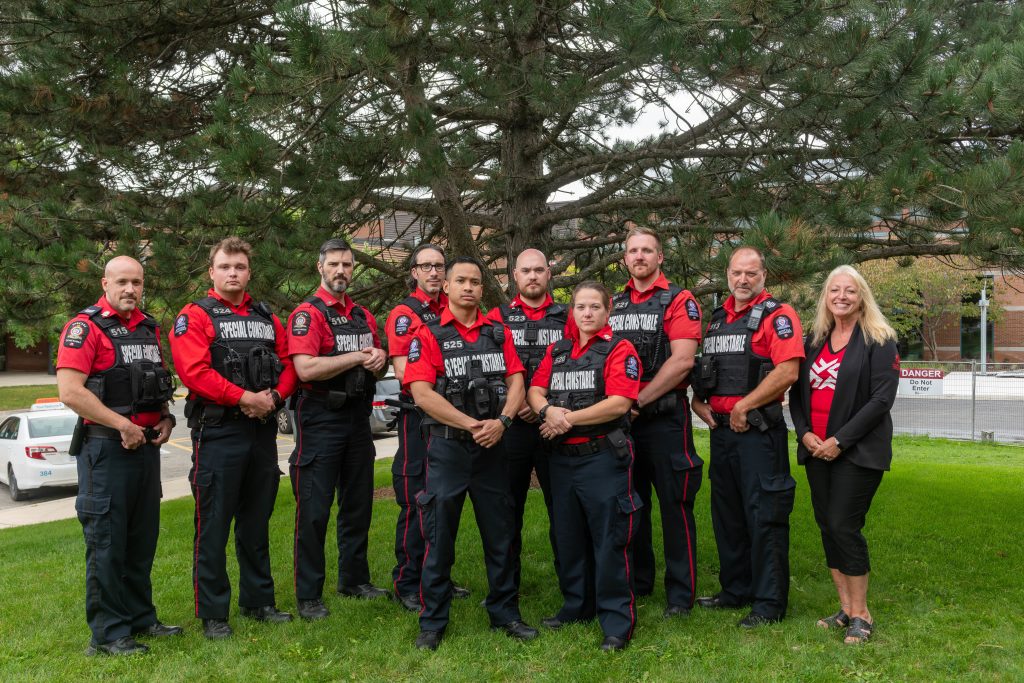What Does a Special Constable Do?
Primary Responsibilities:
- Crime prevention and patrol
- Assisting with calls for service (respond to dispatched calls for service, providing support to regular police officers; assist in searches for property, evidence, and individuals; collect, seize, and log evidence and property)
- Manage crime scenes and traffic collision sites
- Prisoner management
- Enforcement (execute warrants, summons, and DNA orders, completing the necessary paperwork; enforce sections of the Criminal Code of Canada and provincial acts such as the Provincial Offences Act, Mental Health Act, Trespass to Property Act, Liquor License Act and regulations of the organization)
- Specialized community roles (work with marginalized residents, connecting them with services to avoid involvement with the justice system; engage in proactive policing activities and support initiatives aimed at community well-being)
- Other administrative duties include writing reports, recording and submitting witness statements, conducting canvassing, and maintaining clear and chronological records of daily activities in duty books (London Police Services, n.d.).
Besides the College policies, Special Constables on campus must adhere to their code of conduct as outlined in the Community Safety and Policing Act, 2019, which includes:
- Compliance with all relevant laws and regulations.
- Respect for human rights and the Canadian Charter of Rights and Freedoms.
- Act appropriately in public interactions, including lawful arrests and detentions and the use of force only when necessary.
- Maintain integrity by avoiding bribery, misuse of their position, and unauthorized disclosure of information.
- Proper performance of duties without negligence and while sober and unimpaired.
Although Special Constables do not carry firearms, they may carry handcuffs, batons, pepper spray, and sometimes marked vehicles, which may be used to transport those in custody directly to their office on campus or the police station (Government of Ontario, 2023b).


